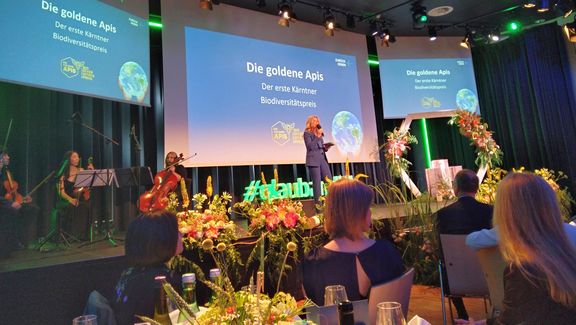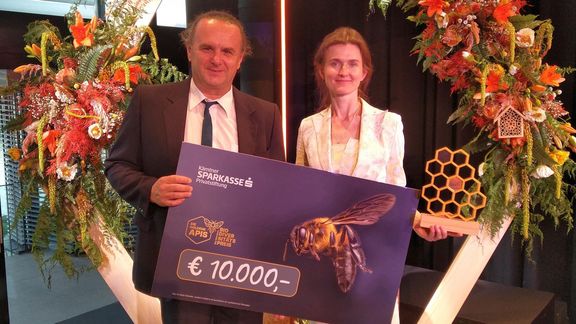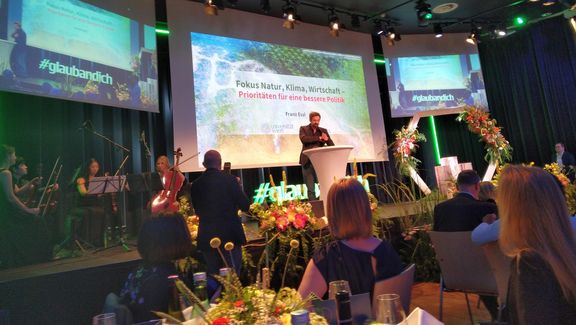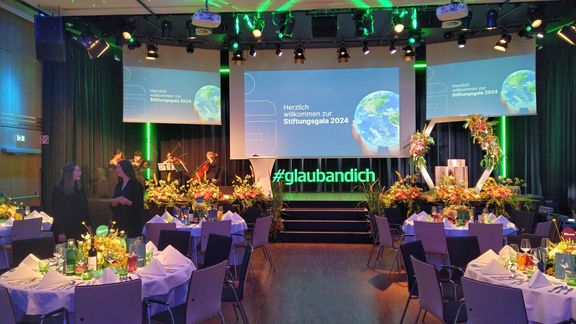The award ceremony took place on Friday, 14 June 2024 during the foundation gala of the Privatstiftung Kärntner Sparkasse in the Casineum Velden. "The Golden Apis" is an initiative of Privatstiftung Kärntner Sparkasse for nature and species conservation.
Gernot Paulus, professor at the Carinthia University of Applied Sciences and head of the SIENA research group, submitted the "KI-BIRD" project. Out of 90 submissions in three categories, "KI-BIRD" from the SIENA research group at the Carinthia University of Applied Sciences was awarded the Golden Apis and thus 1st place in the research category. The "Golden Apis" was endowed with prize money totalling 57,000 euros.
Carinthia research group SIENA
This pilot project was carried out as part of an interdisciplinary research co-operation between Department 8 for Environment, Nature Conservation and Climate Protection Coordination of the Province of Carinthia, the SIENA research group at the Carinthia University of Applied Sciences (Spatial Informatics for Environmental Applications) and the University of New Mexico in Albuquerque in the USA.
Automatic detection with high-resolution images by aerial systems and the use of artificial intelligence (AI) enables the population of waterfowl and wildlife and the mapping of habitat biodiversity for nature conservation. Several UAS missions at the Bleistätter Moor on Lake Ossiach and in Brenndorf in the district of Völkermarkt were carried out synchronised with traditional ground-based waterbird mapping. The validation results showed a promising performance with a classification accuracy of up to 83 per cent at species level. A spatial projection model for visualising the results of individual waterbirds detected by AI in map form shows the spatial distribution of waterbirds in the project area. The proposed digital framework for automatic waterbird detection provides promising results for standardisation and a new paradigm for waterbird counting to support and extend traditional field mapping.
Click here for the report on Klick.Kaernten




